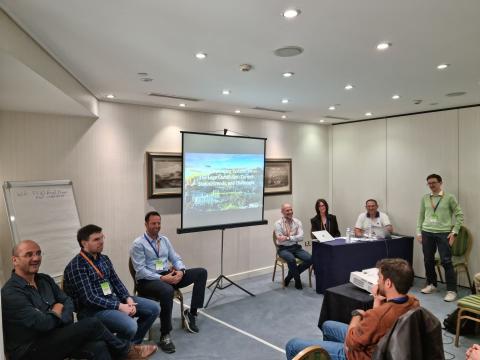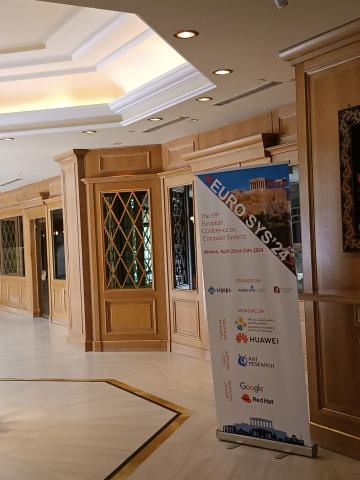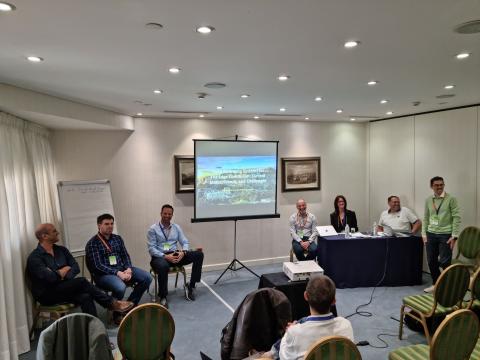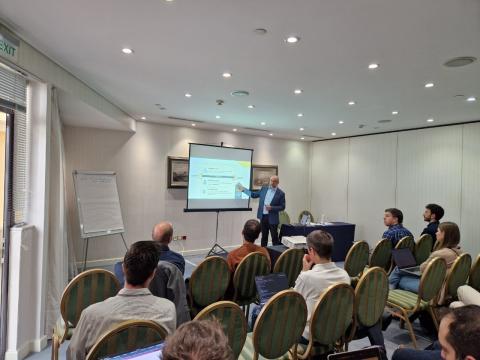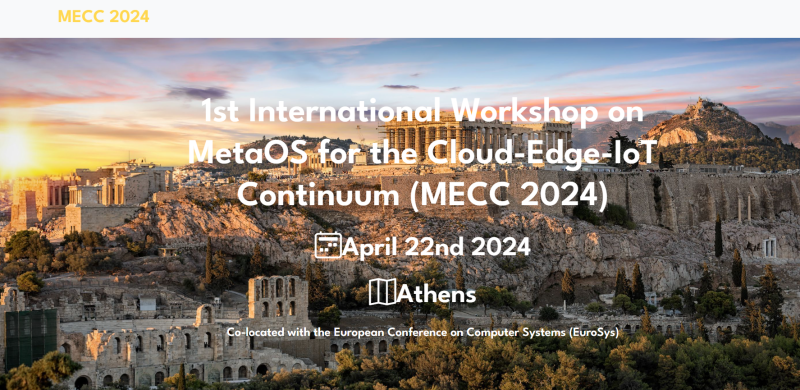
The 1st International Workshop on MetaOS for the Cloud-Edge-IoT Continuum (MECC 2024) - co-located with the ACM EuroSys 2024 - was held on April 22nd, 2024 in Athens, Greece.
This workshop provided an overview of the opportunities and critical issues brought by a MetaOS orchestrating the Cloud-Edge-IoT ecosystem. Through a series of technical presentations, interactive sessions and panel discussions, this workshop addressed critical issues such as interoperability, standardization and contribution to relevant open-source projects.
Participants had the opportunity to exchange ideas, share research findings and collaborate on innovative solutions to advance the field of MetaOS.
The MECC workshop was a joint initiative from EU MetaOS projects: FLUIDOS, aerOS, ICOS, NebulOuS, NEMO and NEPHELE.
Our colleague Panagiotis Papadakos from W3C/ERCIM participated with his keynotes (Interoperability for the edge cloud continuum - The role of semantics in MetaOS and beyond, 11.45-12.30). Within NEPHELE, his presentation explored interoperability throughout the edge cloud continuum, delving into the importance of semantics in MetaOS and its wider implications
At 14.00-15.30 we had a Panel Discussion for MetaOS EU-funded projects: AerOS, FLUIDOS, ICOS, NebulOuS, NEMO, NEPHELE
Title: Meta Operating Systems for The Edge Continuum: Current Status, Trends, and Challenges
Champions: Vasilis Pitsilis (AerOS), Fulvio Risso (FLUIDOS), Panagiotis Trakadas (ICOS), Yiannis Verginadis (NebulOuS), Terpsi Velivassaki (NEMO), and our coordinator Anastasios Zafeiropoulos (NEPHELE).
Key takeaways of this panel discussion included the commitment to a new collaboration phase across MetaOS projects and the compromise of joining efforts for scientific publications on critical issues like the computing continuum and resource sharing.
At 16.00-17.00 there was a Technical session: (A Synergetic Meta-Orchestration Framework for Distributed Application Deployments in the Computing Continuum) with the participation of our colleagues from NTUA:
Nikos Filinis, Ioannis Dimolitsas, Dimitrios Spatharakis (National Technical University of Athens), Eleni Fotopoulou, Ioannis Tzanettis, Constantinos Vassilakis, Anastasios Zafeiropoulos and Symeon Papavassiliou.
